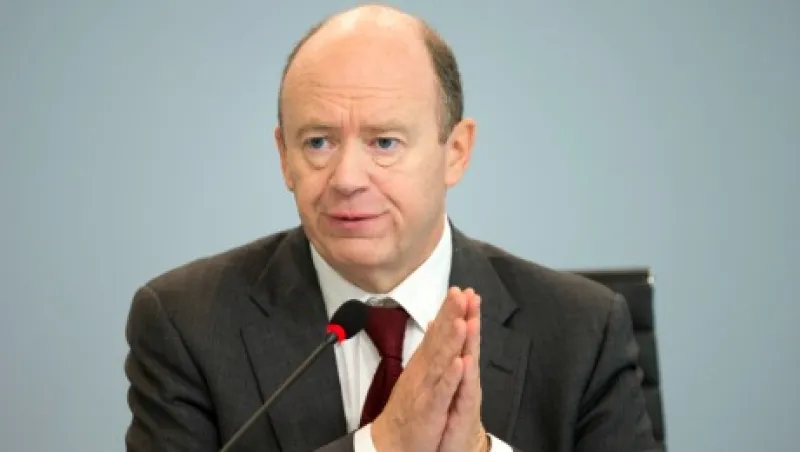Seven years on from the financial crisis, Europe’s big investment banks have turned to new leaders to drive the next phase of their strategic overhauls. On December 1, Jes Staley took over as CEO of Barclays following the departure of Antony Jenkins earlier in the year. In July, Tidjane Thiam took the reins at Credit Suisse, and John Cryan became Deutsche Bank’s new boss.
The three face different challenges in navigating a slew of regulatory and industry obstacles. Staley, a onetime heir apparent to Jamie Dimon at JPMorgan Chase & Co., aims to downsize Barclays’ investment bank, including its core fixed-income operations, and increase the group’s reliance on higher-margin retail and commercial banking under a strategy Barclays adopted 18 months ago. Thiam, former CEO of U.K. insurer Prudential, is cutting back Credit Suisse’s investment bank while leading an expansion of its private banking and wealth management operations, especially in Asia. By contrast, Cryan has arguably the toughest job of the three because Deutsche has to stay the course in investment banking; the business is central to the bank’s identity, and Deutsche lacks sufficient scale in retail and wealth management.
Cryan’s predecessor, Anshu Jain, had drafted a plan called Strategy2020 to maintain Deutsche’s commitment to investment banking even while making substantial cutbacks, and to jettison Postbank, the German retail arm it acquired only in 2010. But Jain was a trader by background who had helped build the investment bank, and investors agitated for his removal, dissatisfied at the pace of change.
On October 29, Cryan, a former CFO at Switzerland’s UBS, gave investors the detail they craved. Over the next three years, Deutsche will shed 35,000 jobs as it sells or spins off Postbank, exits ten countries, drops unprofitable clients and reduces its trading activities. Cryan also plans to overhaul the bank’s sprawling and antiquated information technology systems, many of which he said were “at or beyond end of life” and harming the bank’s compliance capabilities.
Gone are the days of aggressive international expansion aimed at boosting top-line revenue and market share, said Cryan. But he too urged investors to have patience, saying it would take three years until the new strategy delivered significant improvement.
All investment banks need to make hard choices in today’s environment of much higher capital requirements and reduced trading activity, but the choices are hardest for European banks. Their American rivals — quicker to raise capital in the wake of the crisis and benefiting from a vast domestic market — are enjoying their greatest relative dominance in years. Europeans have been playing catch-up on capital and face some added regulatory burdens.
U.K. banks must ring fence their retail arms from their investment banking operations, with separate capital backing, to prevent the risk of market losses threatening retail depositors. All European banks with sizable U.S. businesses have to establish separately capitalized subsidiaries by June 2016, which will then be subjected to the Federal Reserve’s Comprehensive Capital Analysis and Review process. Barclays estimates the cost of meeting those two requirements will reach at least £1 billion ($1.5 billion). The U.K. lender is also subject to a special bank levy that will hit its fourth-quarter earnings and could push the investment bank unit’s return on equity into negative territory.
On November 18, the Bank for International Settlements unveiled another set of rules, the so-called fundamental review of the trading book, that will require banks to allocate more capital to their trading businesses. Deutsche estimates the change will increase its risk-weighted assets by €100 billion by 2018. Cryan has his work cut out for him. As he told the bank’s investors, “No one can be in denial as to the magnitude of the task.”
Get more on banking.






